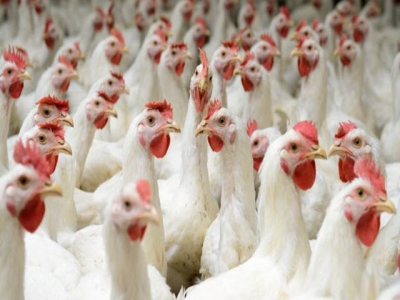New rapid method to develop IBV vaccines for poultry

Major challenge to controlling IBV is achieving protection against numerous types of the virus circulating in commercial poultry.
The U.S. Poultry & Egg Assn. (USPOULTRY) and the USPOULTRY Foundation announced the completion of a funded research project at the University of Georgia in Athens, Ga., in which researchers created a new rapid method to develop infectious bronchitis vaccines.
According to USPOULTRY, Dr. Mark Jackwood at the University of Georgia conducted a research project in which he developed a novel rapid process for developing new live infectious bronchitis virus (IBV) vaccines.
Because new variant IBV strains consistently appear in the field, existing vaccines do not always provide adequate protection, and developing new vaccines is a very slow process. The procedure Jackwood developed will allow rapid development of new vaccine strains to protect against emerging variant virus strains.
Jackwood said a major challenge to controlling IBV is achieving protection against the numerous types of the virus circulating in commercial poultry. Generally, this can be achieved using vaccines that are homologous (same serotype) to circulating IBV types, but many times, homologous vaccines are not commercially available against variant viruses causing disease, he added.
Creating a new live vaccine to protect against a new IBV variant requires attenuating the wild variant virus, usually by serial passage in chicken embryos, which takes a long period of time to accomplish, Jackwood explained.
The objective of this project was to create an infectious clone backbone from an attenuated IBV Mass type strain that can be used to quickly create type-specific vaccines against any circulating IBV strain. An infectious clone is a form of the virus into which gene segments from a wild variant strain can be easily inserted to produce vaccine candidates, Jackwood noted.
An IBV infectious clone was successfully created, and the virus was then rescued in vitro. This work provides an improved method for the control of variant strains of IBV by allowing the rapid construction of new vaccine viruses. Since the original Mass type virus used to create the infectious clone was attenuated, new vaccine viruses created using this method will also be attenuated, Jackwood noted.
Có thể bạn quan tâm
Phần mềm

Phối trộn thức ăn chăn nuôi

Pha dung dịch thủy canh

Định mức cho tôm ăn

Phối trộn phân bón NPK

Xác định tỷ lệ tôm sống

Chuyển đổi đơn vị phân bón

Xác định công suất sục khí

Chuyển đổi đơn vị tôm

Tính diện tích nhà kính

Tính thể tích ao hồ



 Encouraging Hens to Lay in Nests
Encouraging Hens to Lay in Nests  Impact of dust, formaldehyde and delayed feeding after…
Impact of dust, formaldehyde and delayed feeding after…